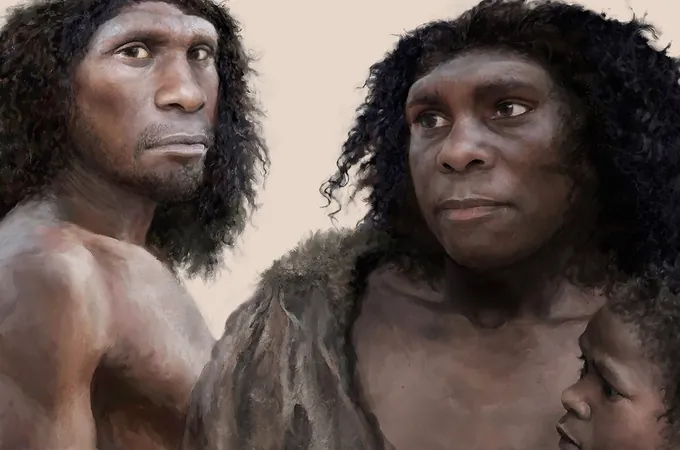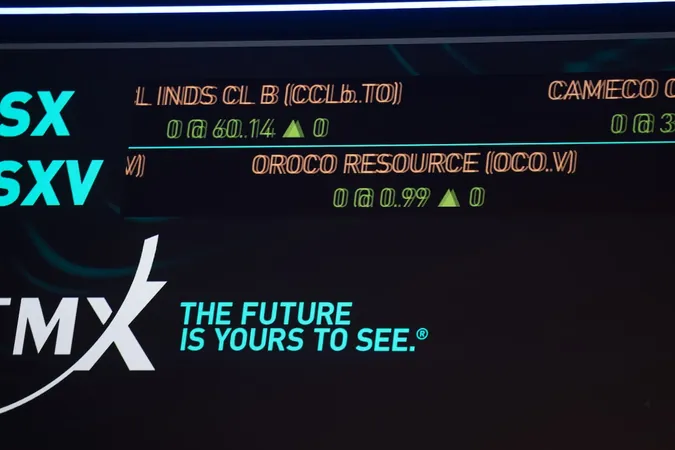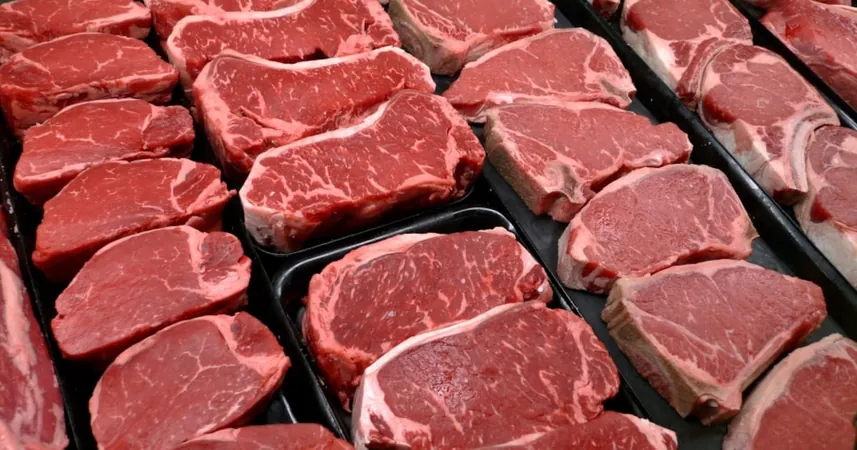
Unearthing Neanderthal's ‘Fat Factory’: Ancient Food Processing Revolutionized
2025-07-12
Author: Emma
A Taste for Fat: Neanderthal Innovations Uncovered
Neanderthals have long been stereotyped as simple hunters, but recent archaeological discoveries reveal they were far more sophisticated than previously thought. These early humans, thriving well before the advent of cities and written language, displayed remarkable ingenuity in extracting every morsel of nourishment from their prey. They weren't just on the hunt; they were culinary pioneers, especially when it came to processing fat.
Revising History: 125,000 Years of Fat Extraction
For decades, experts believed that the advanced technique of boiling crushed bones for fat extraction was exclusive to Upper Paleolithic humans around 28,000 years ago. However, groundbreaking findings from central Germany are turning that assumption on its head, suggesting that Neanderthals mastered this method as early as 125,000 years ago.
Caloric Challenges: Life in the Pleistocene
Neanderthal life was not for the faint of heart. These physically demanding lives led to a high caloric burn from hunting, crafting tools, and braving frigid climates. While big-game animals like horses and deer provided protein, over-indulgence in protein could lead to dangerous health issues, including "rabbit starvation.” Thus, Neanderthals needed a diverse caloric intake, particularly from fat—especially vital during harsh winters when vegetation was scarce.
The Discovery of an Ancient ‘Fat Factory’
At Neumark-Nord in modern Germany, archaeologists stumbled upon a treasure trove of bones from at least 172 large animals. Positioned near a lake, this site exemplified a focused food processing hub. The bones, predominantly from fat-rich areas, bore signs of heating and careful selection, hinting at a sophisticated method of fat rendering—boiling broken bones to extract the precious grease.
Expert Techniques in a Resourceful Era
Though no containers were found, the evidence of heated bone fragments implies that Neanderthals likely crafted organic containers, such as birch bark or animal skins, to facilitate their cooking. The well-documented process of grease extraction predates Upper Paleolithic techniques, revealing that these early humans had a dedicated space for food processing, known as a 'fat factory'.
Challenging Old Beliefs: Neanderthal Intelligence
This remarkable find pushes the boundaries of what we understand about Neanderthal life. They were not mere hunters; their strategic resource management speaks volumes about their intellectual complexity. The meticulous process of extracting and refining fats indicates planning and an understanding of nutrition that resembles modern humans.
Implications for Human Evolution Understanding
The impact of diet on human evolution cannot be overstated. It has shaped our physiology and cognitive capacities, with lipids playing a crucial role. This new evidence reveals that Neanderthals were adept at maximizing the nutritional value of their kills, pushing back assumptions about the timeline of complex food-processing techniques. If more sites reveal similar evidence, the narrative of Neanderthals as basic hunters will need a radical rewrite.
Neanderthals: The Smart Problem-Solvers of Prehistory
Today's scientists intend to explore other archaeological sites in search of similar food processing sites. Should these ‘fat factories’ surface elsewhere, it will further confirm Neanderthals’ sophisticated survival strategies. This discovery is not just about bones; it's about revealing a resilient, intelligent species that mastered their environment long before modern humans arrived on the scene.









 Brasil (PT)
Brasil (PT)
 Canada (EN)
Canada (EN)
 Chile (ES)
Chile (ES)
 Česko (CS)
Česko (CS)
 대한민국 (KO)
대한민국 (KO)
 España (ES)
España (ES)
 France (FR)
France (FR)
 Hong Kong (EN)
Hong Kong (EN)
 Italia (IT)
Italia (IT)
 日本 (JA)
日本 (JA)
 Magyarország (HU)
Magyarország (HU)
 Norge (NO)
Norge (NO)
 Polska (PL)
Polska (PL)
 Schweiz (DE)
Schweiz (DE)
 Singapore (EN)
Singapore (EN)
 Sverige (SV)
Sverige (SV)
 Suomi (FI)
Suomi (FI)
 Türkiye (TR)
Türkiye (TR)
 الإمارات العربية المتحدة (AR)
الإمارات العربية المتحدة (AR)